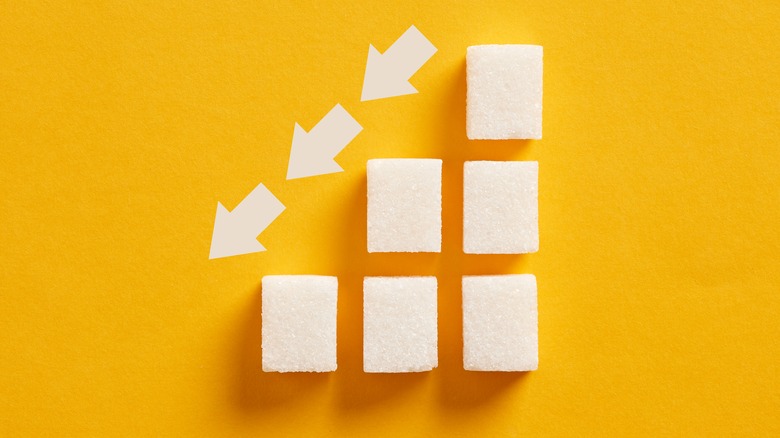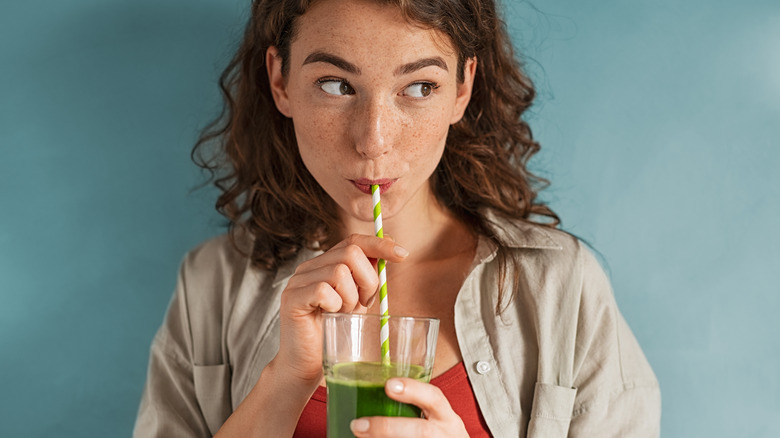Is It Safe To Drink Energy Drinks If You Have Diabetes?
Energy drinks are different from other beverages in that they are specifically marketed to increase energy and improve mental and physical performance. According to the Centers for Disease Control and Prevention (CDC), they typically contain caffeine, sugar, and other ingredients such as taurine, guarana, and B vitamins. One of the main differences between energy drinks and other beverages is the amount of caffeine they contain — usually a much higher level than other types of drinks. According to Harvard T.H. Chan, 8 ounces of an energy drink has approximately 85mg of caffeine, compared to a 12-ounce diet cola, which has around 40 mg. The exact amount of caffeine in an energy drink can vary, but a standard drink is usually around 16 ounces, which doubles the caffeine content to 170mg.
Another difference between energy drinks and other beverages is the presence of additional ingredients. Common additives like taurine, guarana, and B vitamins (mentioned above) are claimed to have energizing or performance-enhancing effects, per the CDC. However, the benefits of these ingredients are not well understood, and their safety and effectiveness have often been the subject of debate. This is especially true for people who have diabetes — a chronic condition that affects the way the body processes blood sugar (via Cleveland Clinic).
Energy drinks are high in sugar
Energy drinks typically contain large amounts of sugar, which can cause blood sugar levels to rise rapidly. This can be especially dangerous for people with diabetes, as high blood sugar levels can lead to serious health complications (per Cleveland Clinic). According to Harvard T.H Chan, a typical energy drink contains approximately 40 grams of sugar. The American Heart Association (AHA) advises limiting sugar intake to 6% of daily calories. For women, this is around 25 grams of sugar, and 36 grams for men, per the AHA. These limitations are even more important for people with diabetes. In addition to sugar, energy drinks often contain caffeine, which is a stimulant that can cause anxiety, insomnia, and other side effects.
In short, it is important for people with diabetes to be mindful of their sugar intake, as energy drinks can affect blood sugar levels and overall health.
Alternatives to energy drinks
As mentioned, diabetes can have serious complications if it is not properly managed. High blood sugar levels can damage the blood vessels, tissues, nerves, and organs over time and lead to serious health problems, such as heart disease, nerve damage, kidney disease, and vision loss (per Cleveland Clinic).
If you have diabetes and are looking for a way to boost your energy levels, healthier options are available. Instead of energy drinks, it is generally recommended to opt for beverages low in sugar and caffeine, such as water, low-fat milk, kombucha, or vegetable juice (via Healthline). Exercise, getting enough sleep, and eating a healthy diet can all help to increase energy and improve overall health, according to Harvard Medical School. If you are unsure which drinks are best for you, it is a good idea to speak with a doctor or a registered dietitian. They can help you develop a plan tailored to your specific needs.



